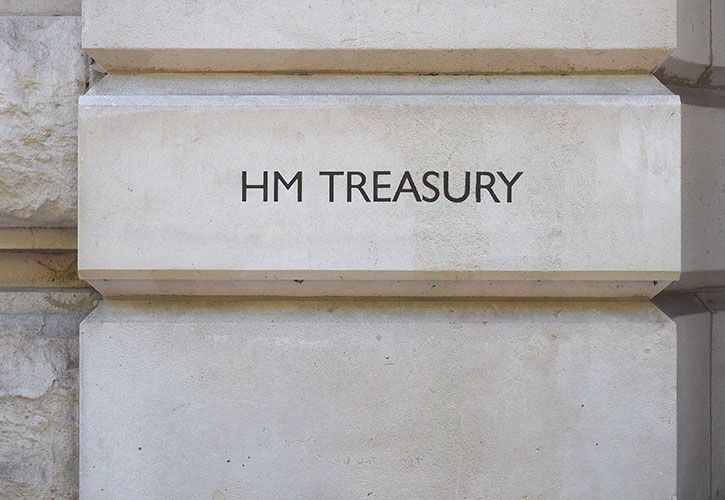UK DIY News
Autumn Budget: Industry Commentary

Today's Autumn Budget included extended rates relief for retail and hospitality, and an increase to employers' National Insurance costs.
Key points for businesses, according to BBC News:
Companies will pay NI at 15% on salaries above £5,000 from April, up from 13.8% on salaries above £9,100, raising an additional £25bn a year
Employment allowance - which allows smaller companies to reduce their NI liability - to increase from £5,000 to £10,500
Tax paid by private equity managers on share of profits from successful deals to rise from up to 28% to up to 32% from April
Main rate of corporation tax, paid by businesses on taxable profits over £250,000, to stay at 25% until next election
We'll add more comments on the announcement as they come in, but for now, here are some initial industry responses:
Virtualstock
- Ed Bradley, CEO and founder of Virtualstock, a UK retail tech firm backed by former Dragon Nick Jenkins, gives his view on the impact on the retail community:
Keir Starmer’s “harsh light of fiscal reality” has shone through for retail businesses. With high inflation and increasing tax burdens, retail is a tough (but still brilliant) business to be in. It contributes over £100 billion annually to the country’s GDP. That’s why it’s pleasing to hear that the industry has, at last, been granted the business rate relief it desperately needs. That said, there’s another way the government can support retail businesses – through tech investment.
Rachel Reeves’ apparent lack of tech investment could negatively affect the retail industry. Technology is critical for optimising supply chains, reducing inventory holding costs, and improving productivity. With concerns around the 'death of the high street', embracing digital transformation is crucial for survival and boosting the UK economy. Not to mention that amongst consumers, there is a growing demand for agile, eCommerce-driven solutions. It’s tech and not just tax that the government must think about.”
CBI
- Rain Newton-Smith, CBI Chief Executive, said:
“The Chancellor had difficult choices to make to deliver stability for the economy and public finances. A more balanced approach to our fiscal rules which prioritises capital investment should help to unlock private sector investment in our infrastructure and net zero transition over the long-term.
“This is a tough Budget for business. While the Corporation Tax Roadmap will help create much needed stability, the hike in National Insurance Contributions alongside other increases to the employer cost base will increase the burden on business and hit the ability to invest and ultimately make it more expensive to hire people or give pay rises.
“Only the private sector can provide the scale of investment required to deliver the government’s growth agenda. To achieve this shared mission of growing our economy sustainably, it’s vital that the government doubles down on its partnership with business to unlock the investment that is needed to drive opportunity around the UK.”
PWC
- Lisa Hooker, Leader of Industry for Consumer Markets at PwC UK, explores what the Budget might mean for both shoppers and businesses during the important Golden Quarter:
“The latest Budget brings some positive news for consumers from the increase in living wage, freezing of fuel duty and triple lock on pensions. The minimum wage hike will particularly benefit younger consumers, who, as highlighted by PwC’s latest Consumer Sentiment survey, are already leading in spending.”
“High street businesses, especially in retail, leisure, and hospitality, will benefit from the extension of the 40% business rate relief—up to £110,000 per business until 2026”.
“The increase in capital taxes may impact luxury spending as high-net-worth individuals adapt to the new tax structure. Pint drinkers will toast to the draft duty freeze this festive season, providing relief to pubs and patrons, while expanded support for breakfast clubs boosts growth for grocers and hospitality businesses that support these community programs.”
“Despite the consumer industry's ongoing challenges in achieving growth this year, the rising employment taxes will be a disappointment. Additionally, there has been no comprehensive review of critical areas such as business rates and the apprenticeship levy."
“We do hope that increased certainty on government policy and taxes will reverse some of the declines seen in our latest consumer sentiment survey”.
British Retail Consortium
Responding to today’s Budget announcements, Helen Dickinson, Chief Executive of the BRC, said:
“Retailers are counting the cost of today’s Budget: over £2.3bn in increases to employer National Insurance contributions; £367m due to the larger-than-expected rise to the National Living Wage; and a £140m hike to next April’s business rates. These costs come into effect from April next year and are on top of other upcoming regulatory costs and an estimated £300-800m of extra costs from the implementation of the Employment Rights Bill.
“Retail employs three million people and 2.7 million more across supply chains, driving investment in jobs, communities and, ultimately, economic growth, right across the country. For a low margin industry, today's Budget will hit hard, with the odds now stacked firmly against growth and investment in the short term. These new costs also risk increasing the prices customers pay at the till.
“As the industry prepares for over £2.5bn in new costs in 2025, improvements to the business rates system will not come until 2026. We welcome the recognition that retail, along with hospitality businesses, should pay lower rates. But with the detail still to be worked through, it is unclear whether this will address an imbalance which sees retail, as 5% of the economy, pay 21% of the total business rates bill. In order to stimulate investment, it is vital these changes reduce the overall costs on the industry, rather than simply shifting the burden from one part to another.”
CHANGES TO BUSINESS RATES FROM 2026:
“While retailers welcome future action on rates, they are assessing the impact of today’s announcement. There remains many unanswered questions about the new charges and discounts that will be levied from 2026. Charging more to businesses with higher rateable values may punish not only distribution hubs, but also larger stores, which play a key role in attracting footfall to high streets and town centres.
“With retailers paying over 21% of all business rates in the economy, the solution is not to simply shift the burden around the industry, but to look outside retail. Without action to address the disproportionate impact of business rates on retail, the Government’s plan is simply robbing Peter to pay Paul.”
RETAIL HOSPITALITY AND LEISURE RELIEF CHANGES:
“While the extension of the RHL relief to small businesses in 2025/26 may provide support for some small shops across the country, it also represents a significant decrease from the current year. The measures will do nothing to help bigger brands that play such a key role in attracting shoppers and delivering investment for our high streets and town centres. Thriving shops of all sizes are essential to successful high streets to ensure breadth of choice, convenience and experience for customers.”
EMPLOYER NATIONAL INSURANCE CONTRIBUTION RISES:
“Increases to National Insurance contributions are yet another case of piling taxes on an already overburdened industry – a decision which will reduce investment in shops and jobs. As a low-margin industry and the UK’s largest private sector employer, the scale of increases will have an immediate and disproportionate effect on both retailers and their supply chains, who together are responsible for employing 5.7m people across the country.”
ON MINIMUM WAGE RISES:
“Retailers strongly support the objective of higher wages and pay growth in the industry has outpaced the UK economy in eight of the last nine years. However, with retailers facing increases in costs from implementation of the Employment Rights Bill and National Insurance contributions, investment plans and economic growth will be impacted given the larger-than-expected increase to NLW. This adds £367m more than pre-Budget expectations.”
RETAIL CRIME:
“We welcome the Chancellor’s firm stance on shoplifting, with the announcement on extra funding aimed at tackling a scourge that costs the industry over £1.8bn. This is on top of the scrapping of the low-level shoplifting threshold, which has resulted in many police forces ignoring smaller crimes. Working closely with the police and Government, retailers are determined to tackle retail crime – from shoplifting, to violence against retail workers.”
Source : Virtualstock, CBI, PWC, BRC
Image : claudiodivizia / iStock / 1178304624
I find the news and articles they publish really useful and enjoy reading their views and commentary on the industry. It's the only source of quality, reliable information on our major customers and it's used regularly by myself and my team.











































